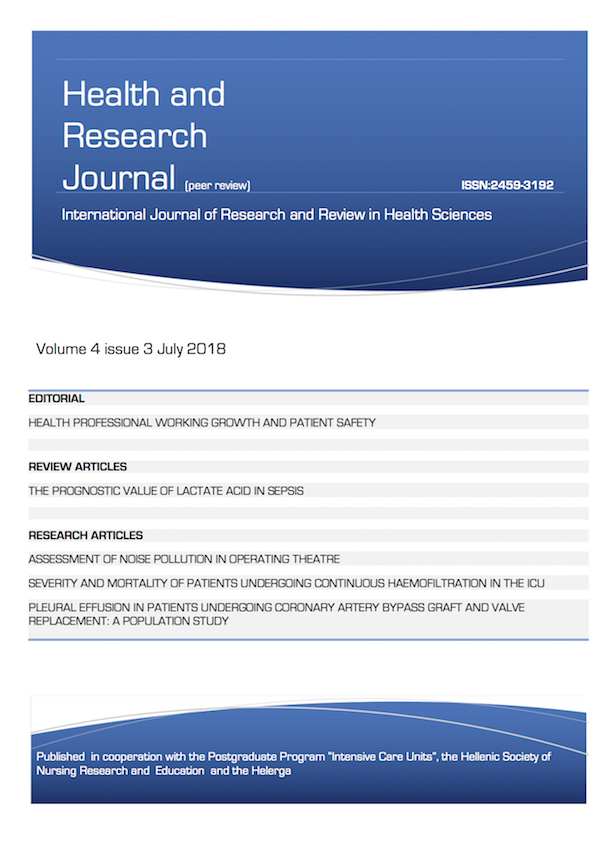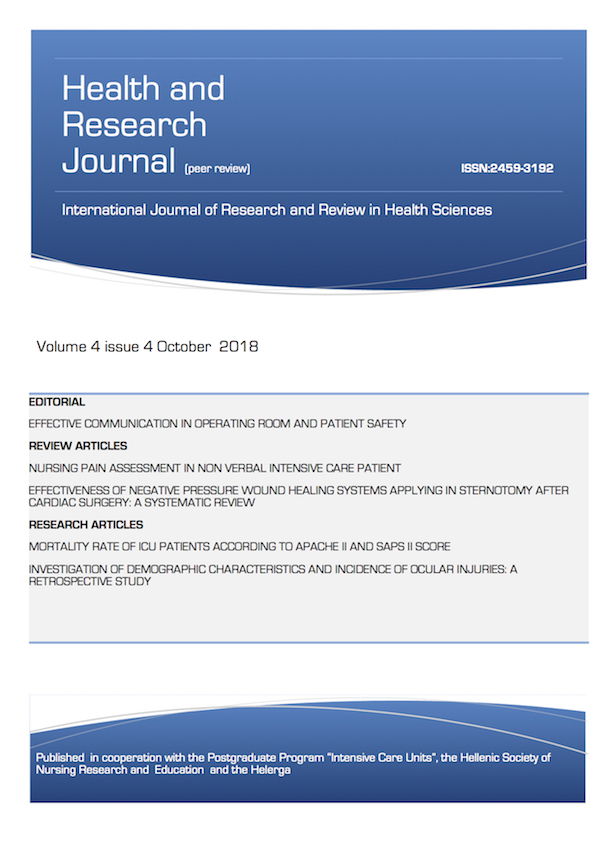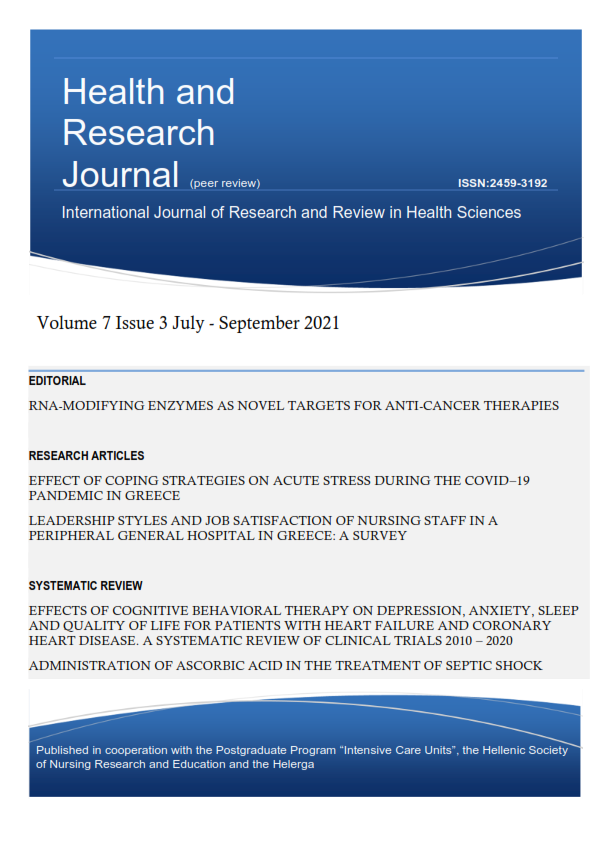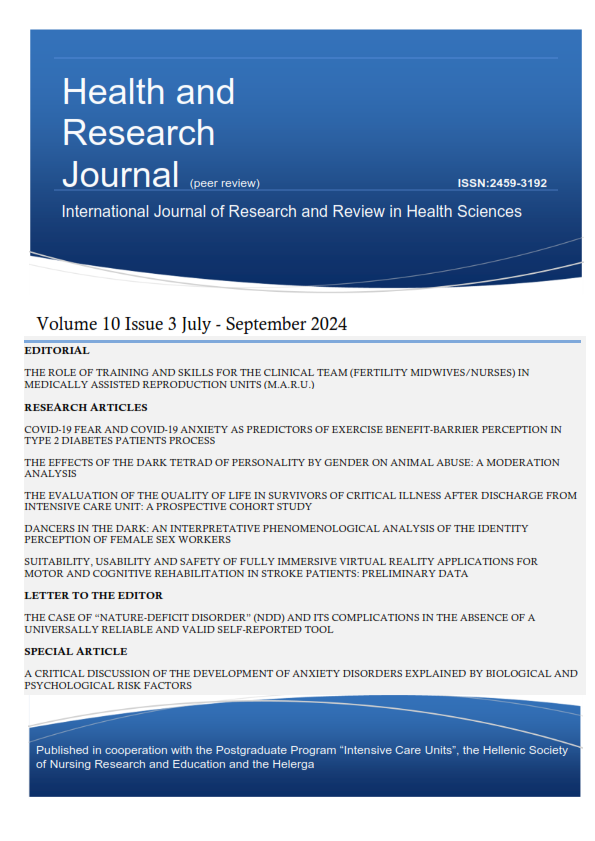Attitudes and perceptions of health professionals towards mental patients attending emergency room

Abstract
Introduction: Mental health patients are a group of population that has predominantly been stigmatized throughout the centuries.
Aim: The aim of the present study was to explore attitudes of health professionals in the emergency department towards the mentally ill.
Material and Methods: The sample of the study consisted of 278 health professionals working in Emergency Departments. A questionnaire scale O.M.I. (Opinion about Mental Illness) was used for data collection. Data analysis was performed with the statistical package Statistical Package for Social Sciences (SPSS) ver.22.
Results: The correlation of five O.M.I. scale factors there is no statistically significant relationship (p-value> 0.05) with the variables sex and years of employment. Age had a statistically significant relationship (p-value=0.034) with the factor "social integration" and has no statistically significant relationship (p-value> 0.05) with the remaining factors O.M.I. scale ("Social discrimination", "social constraint", "social care" and "ground"). In association with education there is a statistically significant relationship with the agents 'social discrimination'(p-value<0.001), 'social restriction'(p-value=0.001), and "ground"(p-value=0.045) and there statistically significant relationship (p-value> 0.05) with the "social inclusion"(p-value<0.001) and "social care" specialty.The variable has a statistically significant difference (p-value <0.05) the factor "social distinction” (p-value<0.001) between doctors andnurses, in the "social restriction 'among doctors and nurses and between nurses and other disciplines and the factor "social integration"(p-value<0.001) between physicians-nurses and doctors with other specialties.
Conclusions: The statistical analysis of the questionnaires (O.M.I. scale) distributed showed that the variables age, educational level, specialty affect the attitudes and perceptions of health professionals towards the mentally ill (negative stops), which form the stigma of mental illness.
Article Details
- How to Cite
-
Douki, S., Marvaki, C., Toulia, G., & Stavropoulou, A. (2019). Attitudes and perceptions of health professionals towards mental patients attending emergency room. Health & Research Journal, 2(4), 261–276. https://doi.org/10.12681/healthresj.19846
- Section
- Special Articles
Copyright notice:
The journal "Health and Research Journal" reserves the rights for copyright of the content of the website and also the copyright of the articles published.
By virtue of their appearance in this journal, the articles are free to be used for non-commercial purposes. However, the articles cannot and must not be used in anyway, published elsewhere or modified without any reference to the author and the first publication of the article.






